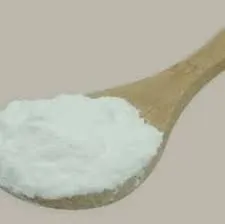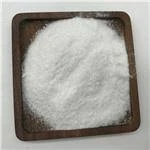triethylene glycol diacetate
Chemicals play a crucial role in maintaining the efficiency and safety of industrial boilers. Selecting the right chemicals can significantly enhance boiler performance, longevity, and reliability. With over 20 years of expertise in boiler management, this guide delves into the essential chemicals used in boiler systems, providing insightful, expert recommendations for optimal operation.
The primary purpose of using chemicals in boilers is to prevent scaling, corrosion, and fouling, which can hinder heat exchange and reduce the system's lifespan. The types of chemicals used can vary, but they generally fall into several important categories, each with a specialized function.
First, scale inhibitors are vital in preventing mineral deposits from forming on the boiler's heated surfaces. These chemicals typically contain phosphates, polymers, or blends thereof. By binding with scale-forming minerals like calcium and magnesium, scale inhibitors keep them soluble, preventing precipitation and buildup. Successful application of these chemicals results in improved energy efficiency and reduced maintenance costs.
Corrosion inhibitors are another essential type of chemical employed in boiler systems. Corrosion can severely damage metal components and lead to costly repairs or replacements. Common inhibitors include sodium sulfite, hydrazine, and organic amines, each serving to neutralize oxygen or modify the pH of the water. By maintaining an ideal environment, they protect the boiler from oxidative and acidic corrosion, thereby ensuring continuous, safe operation.
Focusing on the third category, antifoaming agents, they are applied to control and minimize foam formation. Foam can significantly disrupt boiler operations by lowering heat transfer efficiency and leading to inaccurate water level readings. Silicone-based agents are often used for their ability to break foam and maintain water quality, ensuring consistent system performance.
Oxygen scavengers form a critical line of defense against oxidative corrosion. Oxygen dissolved in boiler water can cause severe pitting in economizers and steam lines. Inorganic scavengers like hydrazine and sodium sulfite, as well as organic variants like DEHA (Diethylhydroxylamine), act to chemically eliminate dissolved oxygen. The use of oxygen scavengers is pivotal for extending the life of the boiler systems, especially when precise chemical monitoring and dosing are employed.
Alkalinity builders play a complementary role by maintaining a favorable pH environment inside the boiler. A balanced pH prevents acidic corrosion and supports the effectiveness of other chemical treatments. Typical agents include sodium hydroxide and tri-sodium phosphate, which buffer the system and safeguard it against harmful pH fluctuations.chemical used in boiler
It is essential to underline the importance of water softeners as part of the chemical regimen. The use of ion exchange resins in softeners effectively removes hardness from the boiler feedwater, aiding in scale prevention right from the source. This foundational step underscores the obligation to preemptively address potential scaling issues.
Key to the successful use of these chemicals is the integration of robust monitoring and maintenance practices. Regular testing and analysis of boiler water chemistry are compulsory, allowing for timely adjustments in chemical dosing. This proactive approach guarantees the safety and efficiency of the boiler system.
For industries seeking to enhance boiler operations, investment in automatic dosing systems can provide significant benefits. These systems deliver precise quantities of chemicals based on real-time water quality data, ensuring optimal chemical consumption and cost efficiency.
Expert consultations and partnerships with chemical suppliers can also yield substantial benefits. With tailored chemical formulations and professional insights, facilities can address unique operational challenges, continuously improve and optimize the performance of their boiler systems.
Trust in the strategic use of chemicals instills confidence not only in the reliability of the boiler system but also in achieving environmental compliance. Proper chemical management minimizes the emission of harmful substances and aligns with sustainability initiatives, enabling facilities to meet increasing regulatory standards.
In conclusion, the judicious choice and application of chemicals in boiler systems are integral to their health and longevity. By leveraging expert knowledge and advanced technology, industry professionals can ensure their boilers run safely, efficiently, and sustainably, positioning themselves as leaders in their respective fields.
More product recommendations



